
St. Pauli: The Heartbeat of Hamburg
Welcome to St. Pauli, Hamburg's most dynamic and eclectic neighbourhood. Known for its vibrant nightlife, St. Pauli is the place where the city never sleeps. The famous Reeperbahn, often dubbed the 'Mile of Sin,' is a pulsating street filled with bars, clubs, theatres, and restaurants. This is where The Beatles honed their craft in the early 1960s, and the area still echoes with the sounds of live music and laughter. During the day, St. Pauli offers a more laid-back atmosphere with its quirky shops, street art, and green spaces. The historic St. Pauli Landungsbrücken is a great starting point to explore the harbour, take a boat tour, or simply enjoy a stroll along the Elbe River. The Fischmarkt, held every Sunday morning, is a must-visit for its lively atmosphere and fresh seafood. St. Pauli is also rich in cultural experiences. Visit the Panoptikum, Germany's oldest wax museum, or catch a show at the St. Pauli Theatre. For sports enthusiasts, the Millerntor-Stadion is home to the beloved FC St. Pauli football club, known for its passionate fans and unique culture. Whether you're here for the nightlife, the history, or the culture, St. Pauli promises an unforgettable experience.
Local tips in St. Pauli
- Visit Reeperbahn in the evening to experience the full vibrancy of St. Pauli's nightlife.
- Don't miss the Fischmarkt on Sunday mornings for a lively start to your day.
- Check out the street art and quirky shops during the day for a different perspective of the neighbourhood.
- Catch a live performance at the St. Pauli Theatre for a taste of local culture.
- Take a harbour tour from St. Pauli Landungsbrücken to see Hamburg from a different angle.
- If you're a football fan, try to get tickets to an FC St. Pauli match at Millerntor-Stadion.
St. Pauli: The Heartbeat of Hamburg
Welcome to St. Pauli, Hamburg's most dynamic and eclectic neighbourhood. Known for its vibrant nightlife, St. Pauli is the place where the city never sleeps. The famous Reeperbahn, often dubbed the 'Mile of Sin,' is a pulsating street filled with bars, clubs, theatres, and restaurants. This is where The Beatles honed their craft in the early 1960s, and the area still echoes with the sounds of live music and laughter. During the day, St. Pauli offers a more laid-back atmosphere with its quirky shops, street art, and green spaces. The historic St. Pauli Landungsbrücken is a great starting point to explore the harbour, take a boat tour, or simply enjoy a stroll along the Elbe River. The Fischmarkt, held every Sunday morning, is a must-visit for its lively atmosphere and fresh seafood. St. Pauli is also rich in cultural experiences. Visit the Panoptikum, Germany's oldest wax museum, or catch a show at the St. Pauli Theatre. For sports enthusiasts, the Millerntor-Stadion is home to the beloved FC St. Pauli football club, known for its passionate fans and unique culture. Whether you're here for the nightlife, the history, or the culture, St. Pauli promises an unforgettable experience.
Iconic landmarks you can’t miss
St. Pauli Piers
Experience Hamburg's vibrant maritime heart at St. Pauli Piers: a historic waterfront offering stunning views, diverse cuisine, and unforgettable harbor adventures on the Elbe River.
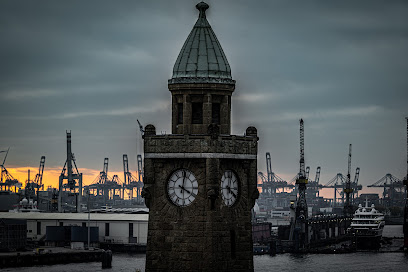
Panoptikum
Experience Germany's oldest wax museum in the heart of Hamburg's Reeperbahn, featuring over 120 lifelike figures from history, politics, music, and entertainment, offering a unique glimpse into artistry and culture.
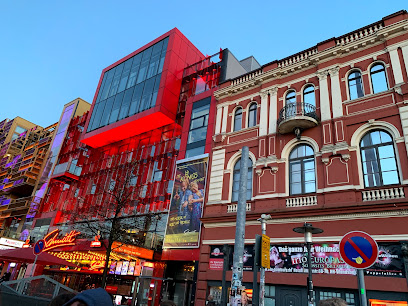
Beatles-Platz
Commemorating the Beatles' Hamburg roots with life-sized statues on a vinyl-record-shaped plaza in the heart of St. Pauli, a vibrant tribute to their formative years and enduring musical legacy.
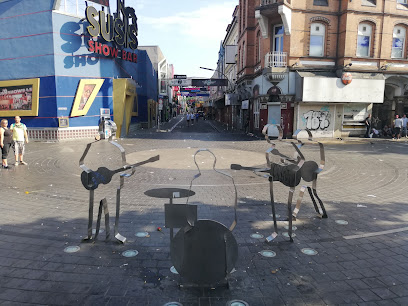
Bismarck Monument
A colossal granite statue honoring Otto von Bismarck, offering panoramic harbor views and a glimpse into Germany's imperial past, located in Hamburg's Alter Elbpark.
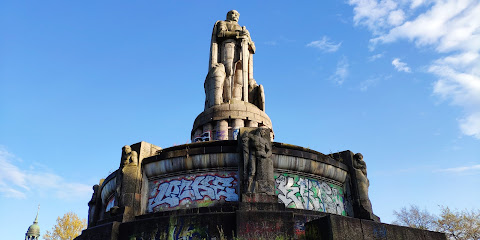
Hans-Albers-Platz
Experience the vibrant heart of Hamburg's St. Pauli at Hans-Albers-Platz, a historic square brimming with nightlife, live music, and the spirit of the legendary Hans Albers.
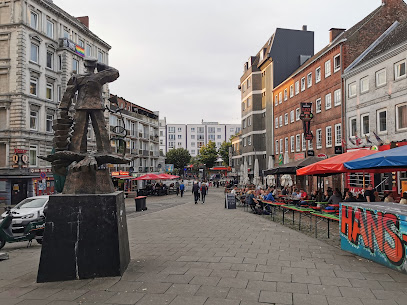
Heiligengeistfeld
Experience the heart of Hamburg's vibrant culture at Heiligengeistfeld, home to the iconic Hamburger Dom and a diverse range of events in the lively St. Pauli district.
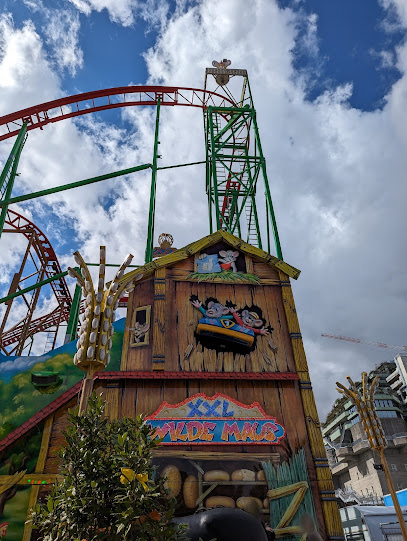
Madonna seafaring
A poignant bronze sculpture near Hamburg's Fischmarkt, the Madonna of the Seafarers serves as a moving memorial to those lost at sea, offering solace and reflection amidst the bustling harbor.
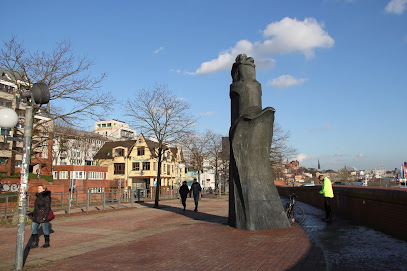
Memorial Arch
A poignant war memorial in Hamburg, the Memorial Arch honors the fallen of both World Wars with its minimalist design and Ernst Barlach's moving sculpture, serving as a reminder of peace.
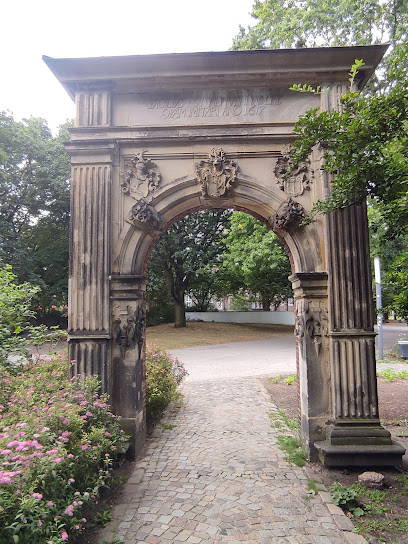
Pegelturm St. Pauli Landungsbrücken
Discover Hamburg's maritime heart at the Pegelturm St. Pauli Landungsbrücken, a historic water level tower offering stunning harbor views and a glimpse into the city's seafaring past.
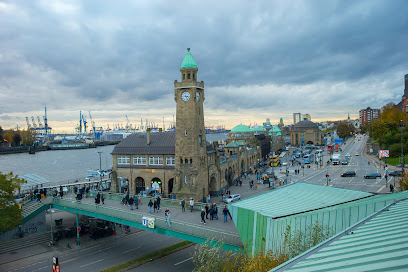
Reeperplatz
Experience the vibrant nightlife and unique culture at Reeperplatz, the heart of Hamburg's entertainment scene, surrounded by eclectic bars, clubs, and eateries in the lively St. Pauli district.
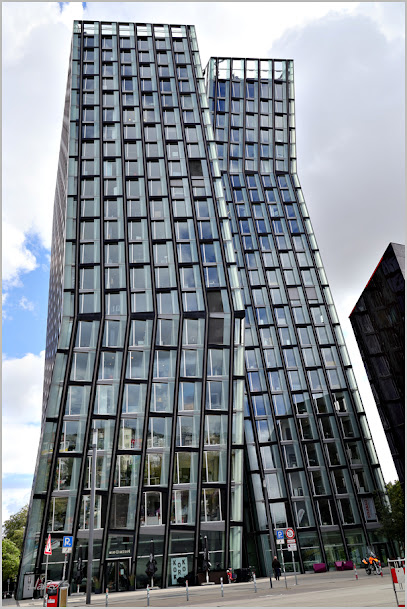
Unmissable attractions to see
St. Pauli Piers
Explore St. Pauli Piers, a vibrant waterfront hub in Hamburg, rich in history, stunning views, and bustling with life, perfect for every traveler.
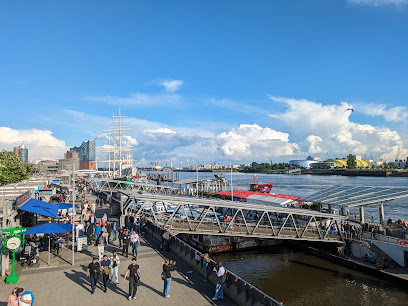
Panoptikum
Explore Panoptikum, Hamburg's iconic wax museum featuring lifelike figures of historical and modern personalities in a fun, family-friendly setting.
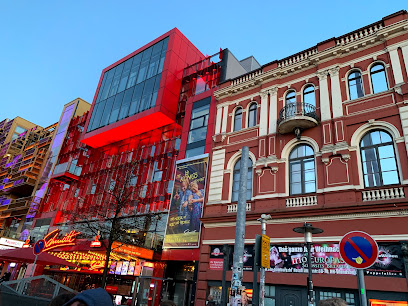
Hamburg Harbor
Discover the rich maritime history and vibrant atmosphere of Hamburg Harbor, a must-visit destination for every traveler exploring Germany.
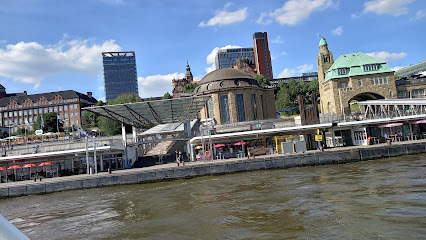
Panorama View Hamburg
Discover stunning views of Hamburg's skyline and waterfront at the iconic Panorama View Hamburg, a must-visit tourist attraction.
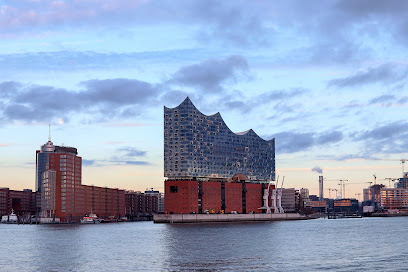
Pegelturm St. Pauli Landungsbrücken
Explore Pegelturm St. Pauli Landungsbrücken, a historic tower in Hamburg offering stunning views and a glimpse into the city's maritime heritage.
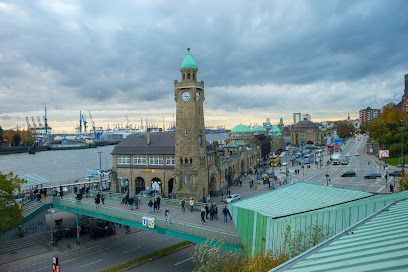
Reeperbahn Führung von Sightseeing Kontor
Discover the enchanting Reeperbahn in Hamburg, where vibrant nightlife meets rich cultural history, creating unforgettable experiences for every visitor.
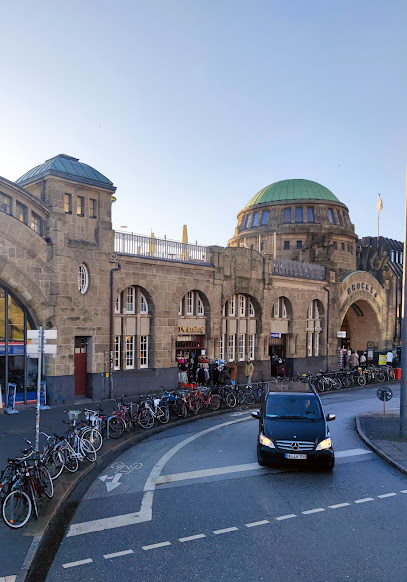
Reeperplatz
Discover the vibrant charm of Reeperplatz in Hamburg, where history meets modernity in a bustling tourist attraction.
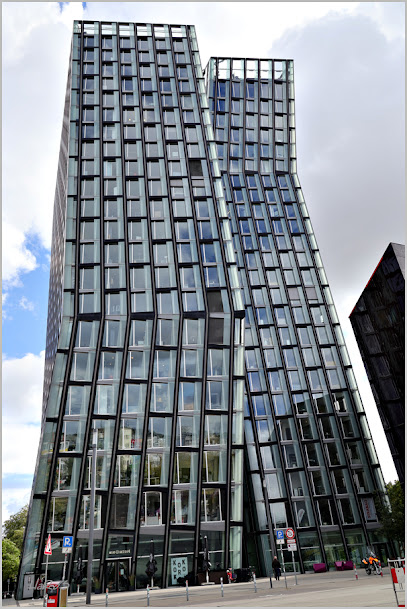
Abfahrt Die Hanse Stadtrundfahrt
Discover Hamburg's history and beauty from the water with Die Hanse Stadtrundfahrt, offering scenic boat tours along the iconic harbor.
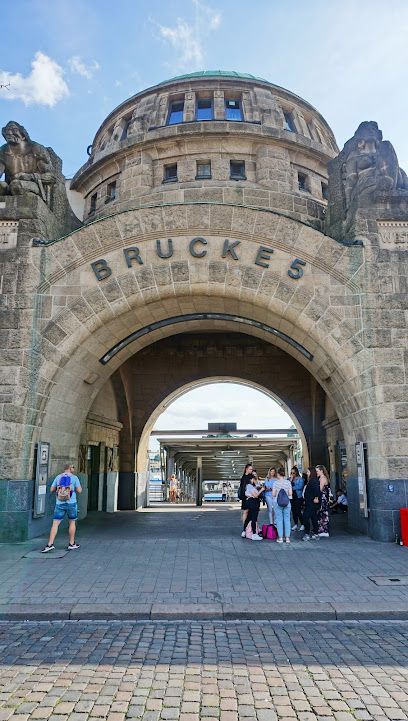
Streetside Gallery
Explore the vibrant Streetside Gallery in Hamburg, an open-air art showcase that celebrates local creativity through stunning murals and street art.
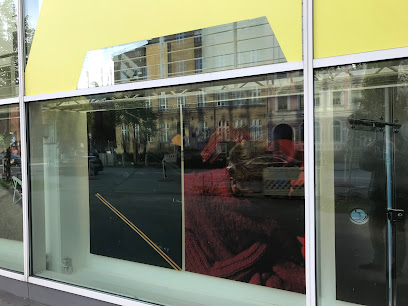
St.Pauli See
Explore the serene St. Pauli See park in Hamburg, an ideal spot for relaxation, picnics, and enjoying the beauty of nature in the city.
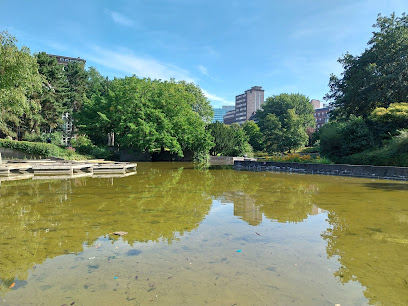
Essential places to dine
clouds Heaven’s Bar & Kitchen
Discover clouds Heaven’s Bar & Kitchen - where exquisite dining meets stunning views in Hamburg's iconic Reeperbahn district.
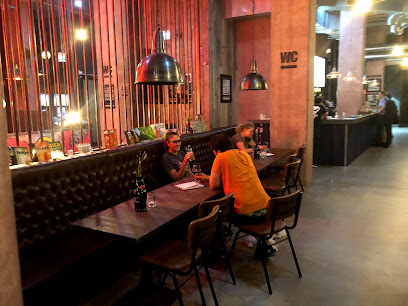
Herzblut St. Pauli
Experience authentic German cuisine and vibrant nightlife at Herzblut St. Pauli, where every meal becomes a celebration.
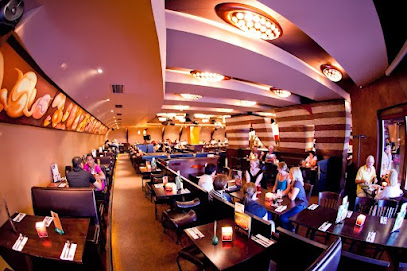
Restaurant Freudenhaus St. Pauli
Experience authentic German cuisine in the heart of Hamburg's vibrant St. Pauli district at Restaurant Freudenhaus.
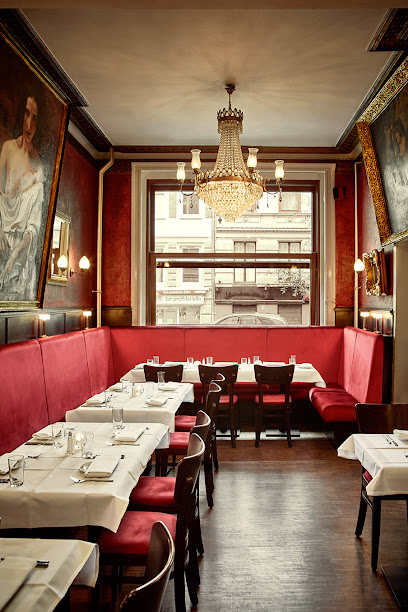
Hamborger Veermaster
Discover the flavors of Hamburg at Hamborger Veermaster – where traditional German cuisine meets modern dining in a cozy atmosphere.
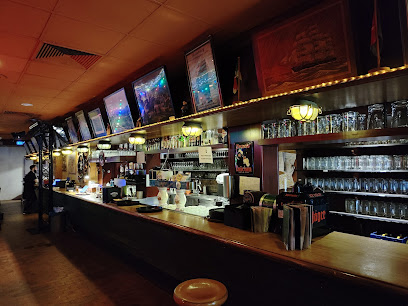
Cuneo
Experience authentic Italian flavors at Cuneo in Hamburg-Mitte – where every meal feels like a trip to Italy.
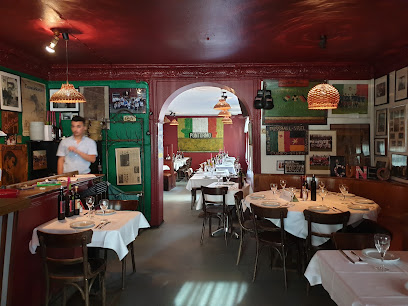
east Restaurant
Discover culinary excellence at east Restaurant in Hamburg—where Japanese flavors meet steakhouse sophistication.
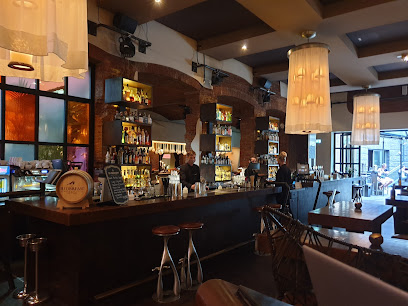
Restaurant Nil
Experience exquisite dining at Restaurant Nil in Hamburg - where flavors meet elegance in an unforgettable atmosphere.
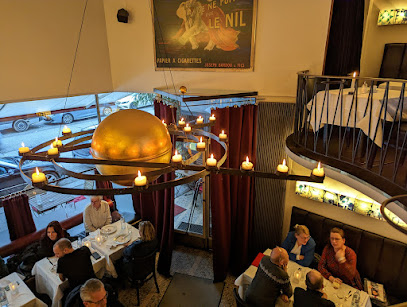
Hidden Kitchen Hamburg
Discover the art of fusion cuisine at Hidden Kitchen Hamburg - where local ingredients meet global flavors in an unforgettable dining experience.
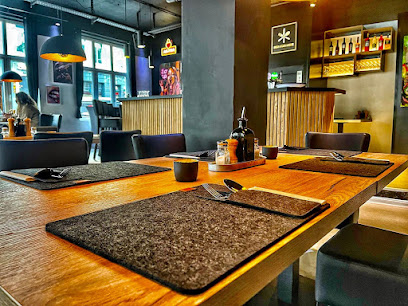
Jolie Restaurant + Cocktail & Wein
Discover authentic German cuisine at Jolie Restaurant + Cocktail & Wein in Hamburg – where tradition meets modern flair.
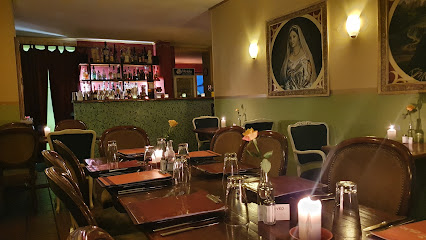
Restaurant waterkant
Discover the exquisite flavors of fresh seafood at Restaurant waterkant in Hamburg, where culinary innovation meets breathtaking riverside views.
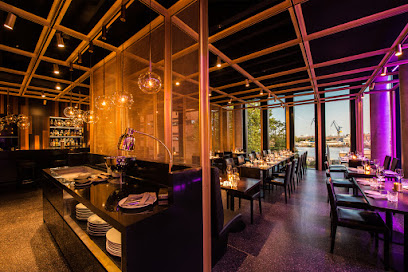
Markets, malls and hidden boutiques
Boutique Bizarre
Discover the playful and eclectic offerings of Boutique Bizarre, an adult entertainment store in Hamburg's vibrant Reeperbahn district.
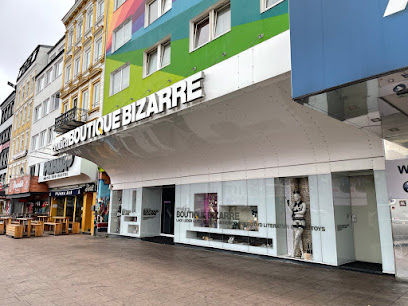
PICK WEIGHT - VINTAGE STORE KILO
Explore a treasure trove of sustainable fashion at Pick Weight - Vintage Store Kilo in Hamburg, where unique vintage finds await every fashion lover.
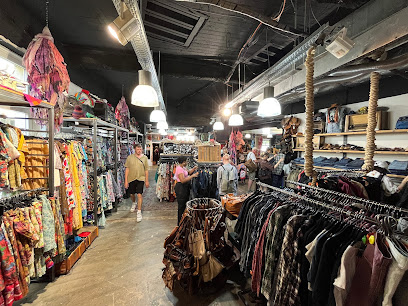
Aladin Center
Explore unique gifts and fashion at Aladin Center in Hamburg, a vibrant shopping haven in the heart of the Reeperbahn!
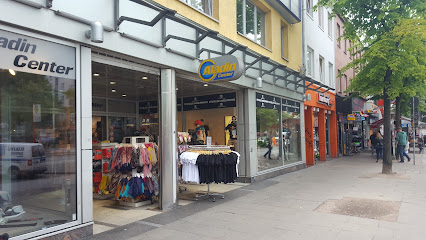
Darkside Boutique
Shop at Darkside Boutique in Hamburg for unique alternative fashion and accessories that celebrate individuality and creativity.
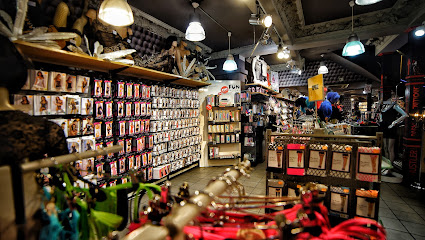
the vintage gallery
Discover unique vintage clothing and furniture at The Vintage Gallery, a hidden gem in Hamburg perfect for finding timeless treasures.
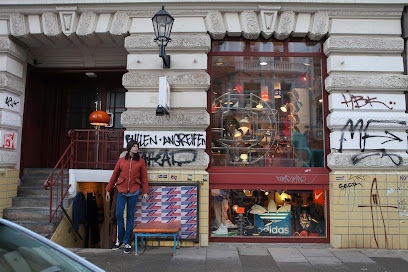
St. Pauli Shop Reloaded
Explore the eclectic offerings of St. Pauli Shop Reloaded, a vibrant kiosk in the heart of Hamburg's lively Reeperbahn district.
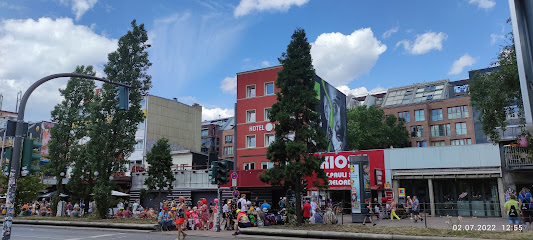
Hip Cats - Vintage Fashion
Explore Hamburg's vintage fashion scene at Hip Cats, where unique styles and eclectic finds await every fashion enthusiast.
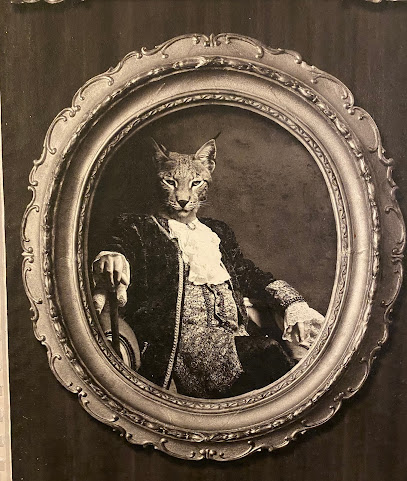
HEY DU - Atelier & Pop Up Store
Explore HEY DU - Atelier & Pop Up Store, a vibrant hub of art, crafts, and unique gifts in Hamburg, capturing the essence of local creativity.
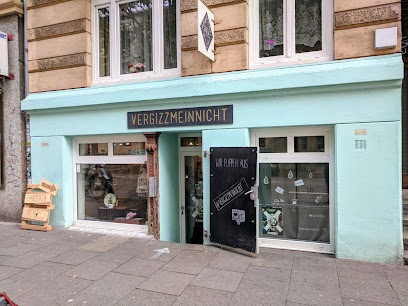
MINAKA Boutique - Damenmode Hamburg
Explore the trendy MINAKA Boutique in Hamburg, where fashion meets individuality with a stunning collection of women's dresses and chic clothing.
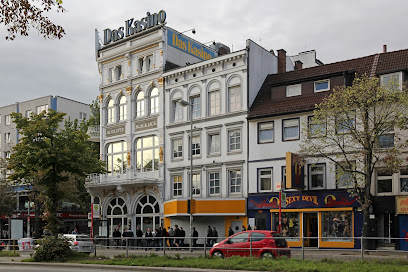
Black-Hornis
Explore Black-Hornis, a vibrant store in Hamburg's St. Pauli, offering unique local crafts and gifts that capture the spirit of the city.
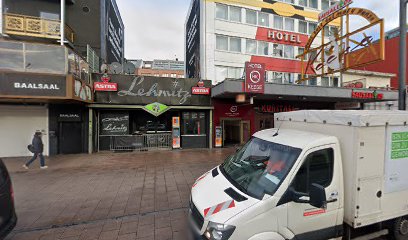
Essential bars & hidden hideouts
ZWICK St. Pauli
Discover the vibrant nightlife at ZWICK St. Pauli, where live music and delicious dining create unforgettable experiences in Hamburg.

The Chug Club
Discover the vibrant atmosphere and unique cocktails at The Chug Club, Hamburg's must-visit cocktail bar for a delightful night out.
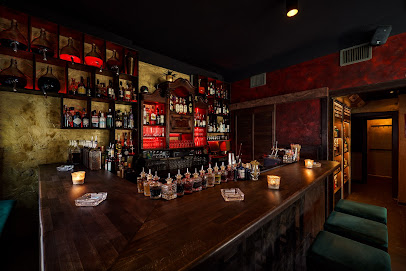
Story Bar Hamburg
Discover the vibrant nightlife at Story Bar Hamburg, where creative cocktails meet an energetic dance floor on the iconic Reeperbahn.
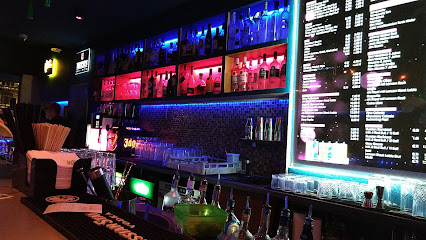
Roschinsky's - Bar
Experience the vibrant nightlife of Hamburg at Roschinsky's, a lively bar offering cocktails, music, and unforgettable moments.
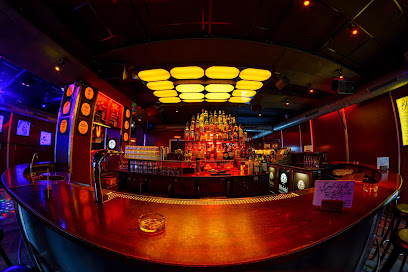
Lehmitz Reeperbahn - Bar & Club - Kiez Hamburg
Discover the pulsating nightlife of Hamburg at Lehmitz Reeperbahn, a lively bar and club at the heart of the iconic Reeperbahn district.
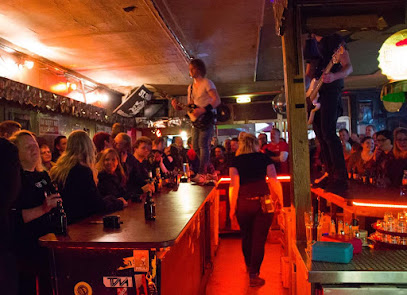
Tortuga Bar - Hamburg
Discover the vibrant Tortuga Bar in Hamburg, where tropical cocktails and a lively atmosphere create the perfect escape from the city.
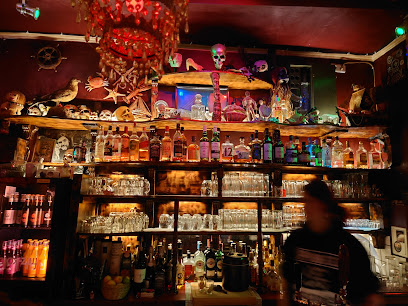
Bar Wohlzimmer
Experience the best of Hamburg's nightlife at Bar Wohlzimmer, where great drinks and a cozy atmosphere come together.
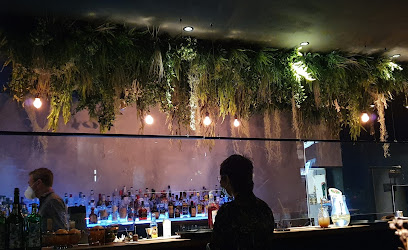
sanktpaulibar
Experience Hamburg's nightlife at Sankt Pauli Bar—where local charm meets modern vibes in the heart of St. Pauli.
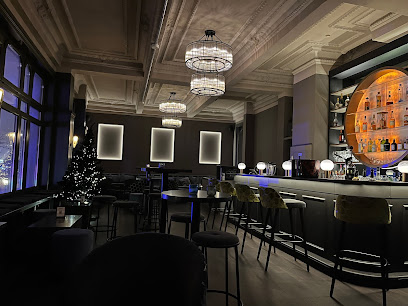
Yakshi's Bar
Experience Hamburg's vibrant nightlife at Yakshi's Bar – a cocktail haven blending delicious drinks with a cozy lounge vibe.
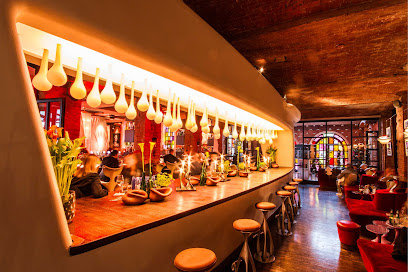
Maria Bar Hamburg St Pauli
Discover the energetic nightlife of Hamburg at Maria Bar in St. Pauli, where creative cocktails and a vibrant atmosphere await.
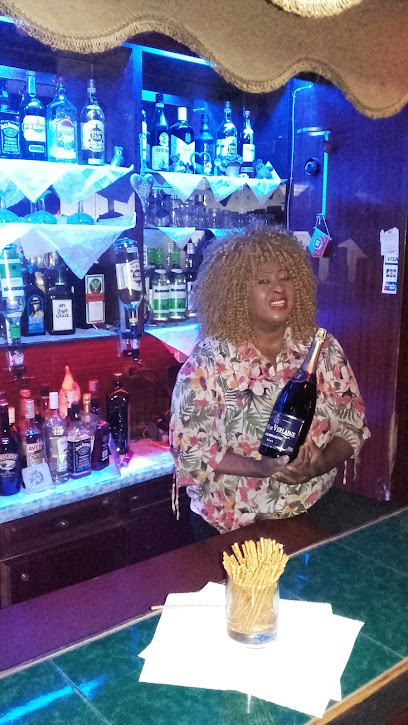
Local Phrases
-
- HelloMoin
[moin] - GoodbyeTschüss
[tʃʏs] - YesJa
[ja] - NoNein
[naɪn] - Please/You're welcomeBitte
[bɪtə] - Thank youDanke
[ˈdaŋkə] - Excuse me/SorryEntschuldigung
[ɛntˈʃʊldɪɡʊŋ] - How are you?Wie geht es dir?
[viː ɡeːt ɛs dɪʁ] - Fine. And you?Gut. Und dir?
[ɡuːt ʊnt diːɐ] - Do you speak English?Sprichst du Englisch?
[ʃpʀɪçst du ˈɛŋlɪʃ] - I don't understandIch verstehe nicht
[ɪç fɛɐˈʃteːə nɪçt]
- HelloMoin
-
- I'd like to see the menu, pleaseIch möchte bitte die Speisekarte sehen
[ɪç ˈmœçtə ˈbɪtə diː ˈʃpaɪzəˌkaʁtə ˈzeːən] - I don't eat meatIch esse kein Fleisch
[ɪç ˈɛsə kaɪn flaɪʃ] - Cheers!Prost!
[pʀoːst] - I would like to pay, pleaseIch möchte bitte bezahlen
[ɪç ˈmœçtə ˈbɪtə bəˈʦaːlən]
- I'd like to see the menu, pleaseIch möchte bitte die Speisekarte sehen
-
- Help!Hilfe!
[ˈhɪlfə] - Go away!Geh weg!
[ɡeː veːk] - Call the Police!Rufe die Polizei!
[ˈʀʊfə diː pʊˈliːtsaɪ] - Call a doctor!Rufe einen Arzt!
[ˈʀʊfə ˈaɪnən aʁtst] - I'm lostIch habe mich verirrt
[ɪç ˈhaːbə mɪç fɛɐˈʔɪʁt] - I'm illIch bin krank
[ɪç bɪn kraŋk]
- Help!Hilfe!
-
- I'd like to buy...Ich möchte kaufen...
[ɪç ˈmœçtə ˈkaʊfən] - I'm just lookingIch schaue nur
[ɪç ˈʃaʊə nuːɐ] - How much is it?Wie viel kostet das?
[viː fiːl ˈkɔstət das] - That's too expensiveDas ist zu teuer
[das ɪst tsuː ˈtɔʏɐ] - Can you lower the price?Kannst du den Preis senken?
[kanst du dɛn pʀaɪs ˈzɛŋkən]
- I'd like to buy...Ich möchte kaufen...
-
- What time is it?Wie spät ist es?
[viː ʃpɛːt ɪst ɛs] - It's one o'clockEs ist ein Uhr
[ɛs ɪst aɪn ʔuːɐ] - Half past (10)Halb elf
[halb ɛlf] - MorningMorgen
[ˈmɔʁɡən] - AfternoonNachmittag
[ˈnaχmɪtaːk] - EveningAbend
[ˈaːbənt] - YesterdayGestern
[ˈɡɛstɐn] - TodayHeute
[ˈhɔʏtə] - TomorrowMorgen
[ˈmɔʁɡən] - 1Eins
[aɪns] - 2Zwei
[tsvaɪ] - 3Drei
[dʀaɪ] - 4Vier
[fiːɐ] - 5Fünf
[fʏnf] - 6Sechs
[zɛks] - 7Sieben
[ˈziːbən] - 8Acht
[axt] - 9Neun
[nɔʏn] - 10Zehn
[tsɛn]
- What time is it?Wie spät ist es?
-
- Where's a/the...?Wo ist ein/der...?
[vo ɪst aɪn/deɐ] - What's the address?Was ist die Adresse?
[vas ɪst diː ˈadʁɛsə] - Can you show me (on the map)?Kannst du mir zeigen (auf der Karte)?
[kanst du mɪr ˈʦaɪɡən (aʊf deɐ ˈkaʁtə)] - When's the next (bus)?Wann kommt der nächste (Bus)?
[van kɔmt deːɐ ˈnɛχstə (bʊs)] - A ticket (to ....)Eine Fahrkarte (nach ....)
[ˈaɪnə ˈfaːɐ̯kɑʁtə (nax)]
- Where's a/the...?Wo ist ein/der...?
History of St. Pauli
-
St. Pauli's history dates back to the 19th century when it emerged as a vibrant district due to its strategic location along the Elbe River. Originally a part of the city of Hamburg, St. Pauli became known for its shipyards and maritime trade, attracting workers and immigrants looking for opportunities in the bustling port city.
-
By the late 19th century, St. Pauli became infamous for its red-light district, particularly around the Reeperbahn. Prostitution was legal and regulated in Germany, leading to the establishment of numerous bars, dance halls, and brothels, which contributed to the district's reputation as a hub of nightlife and entertainment.
-
The 1960s saw St. Pauli become a focal point for counterculture movements in West Germany. Artists, musicians, and political activists flocked to the area, drawn by its liberal atmosphere. The district thrived as a center for rock music and alternative art, with venues like the legendary Star Club hosting famous acts such as The Beatles and Jimi Hendrix.
-
Founded in 1910, FC St. Pauli gained notoriety not just for its football performance but for its association with leftist politics and social activism. The club became a symbol of anti-fascism and inclusivity, emphasizing community values over commercialism, which resonated deeply with the local population.
-
In recent decades, St. Pauli has faced challenges due to gentrification, which has transformed parts of the neighborhood. Nonetheless, locals and activists have worked tirelessly to preserve the district's unique cultural heritage, ensuring that St. Pauli remains a center for artistic expression and social movements, even as it adapts to modern changes.
St. Pauli Essentials
-
St. Pauli is easily accessible from various neighbourhoods in Hamburg. From the city center (Hauptbahnhof), take the U-Bahn (subway) line U3 towards Buxtehude and get off at either St. Pauli or Feldstraße stations. Alternatively, you can take the S-Bahn (commuter train) to Reeperbahn station, which is at the heart of St. Pauli. If traveling from the airport, take the S1 train directly to Hamburg central station, then transfer to the U3.
-
St. Pauli is well-served by public transport, including U-Bahn and bus services. The U3 line runs through key areas of St. Pauli, allowing for easy access to attractions. Bicycles can be rented from various bike-sharing services, as the neighbourhood is bike-friendly. Walking is also a great way to explore the vibrant streets and hidden corners of St. Pauli.
-
St. Pauli is generally safe for tourists, but caution is advised, especially at night. Areas around the Reeperbahn can be lively but also attract pickpockets and other petty crimes. It’s advisable to avoid secluded alleys and poorly lit areas after dark. Stay alert in crowded spaces and keep personal belongings secure.
-
In case of an emergency, dial 112 for fire and medical services, or 110 for police assistance. There are several hospitals in and around St. Pauli, including the University Medical Center Hamburg-Eppendorf. It’s advisable to have travel insurance that covers medical emergencies. Pharmacies are readily available for minor health issues.
-
Fashion: Do wear comfortable clothes suitable for walking. While St. Pauli is eclectic, avoid overly revealing outfits when visiting bars or restaurants. Religion: Do respect the local customs, especially in religious sites. Public Transport: Do validate your ticket before boarding; don't eat or drink on public transport. Greetings: Do use a friendly greeting such as 'Moin!' which is common in Hamburg. Eating & Drinking: Do try local specialties such as Currywurst and Fischbrötchen. Don’t drink alcohol in public spaces outside of designated areas.
-
To experience St. Pauli like a local, explore the smaller bars and eateries off the main tourist paths, such as those on the side streets of the Reeperbahn. Visit the weekly markets at the Spielbudenplatz for local crafts and food. Don’t miss the chance to catch a show at the historic St. Pauli Theater or a local football match at FC St. Pauli's Millerntor-Stadion for an authentic local experience.
Nearby Cities to St. Pauli
-
Things To Do in Lubeck
-
Things To Do in Bremen
-
Things To Do in Hannover
-
Things To Do in Sønderborg
-
Things To Do in Rostock
-
Things To Do in Nyborg
-
Things To Do in Odense
-
Things To Do in Ribe
-
Things To Do in Kolding
-
Things To Do in Næstved
-
Things To Do in Slagelse
-
Things To Do in Groningen
-
Things To Do in Esbjerg
-
Things To Do in Munster
-
Things To Do in Vejle













